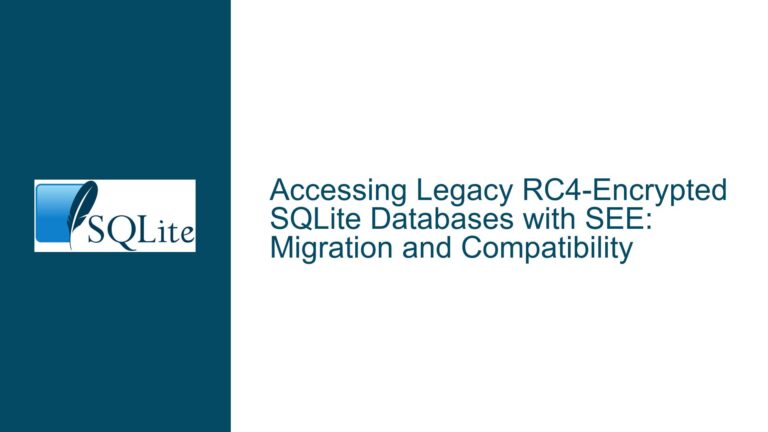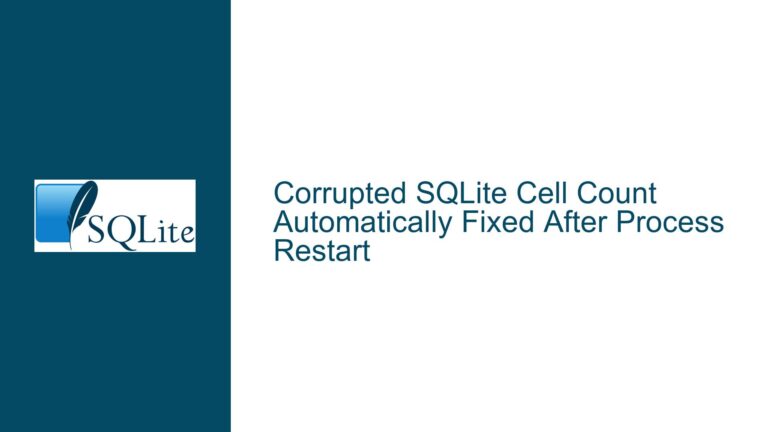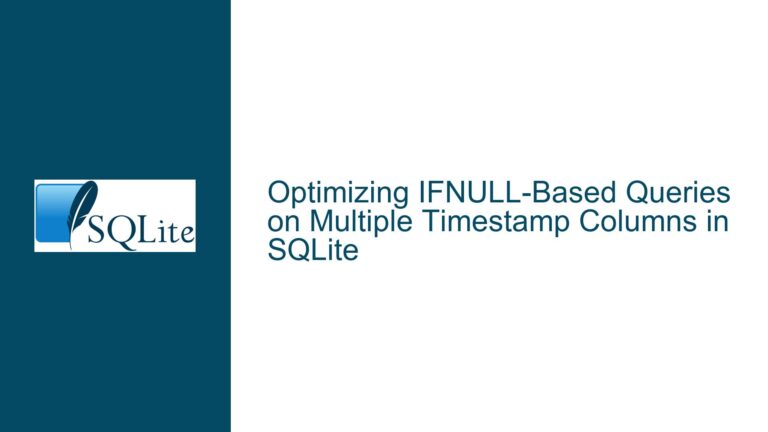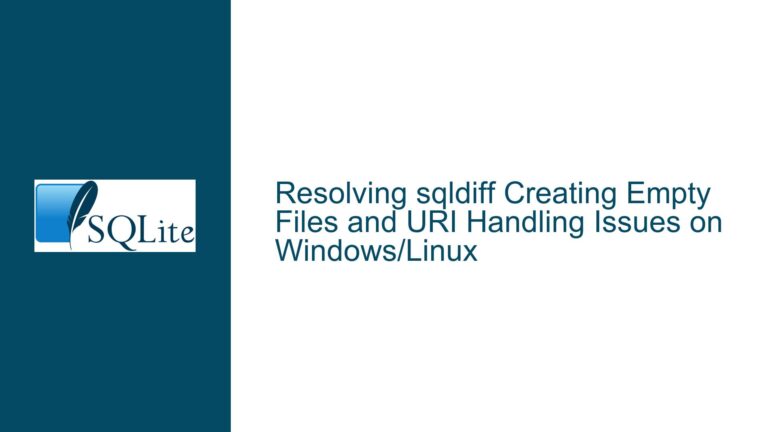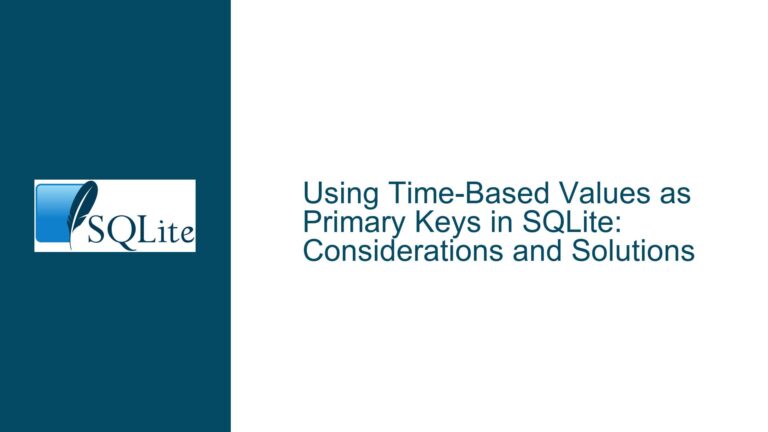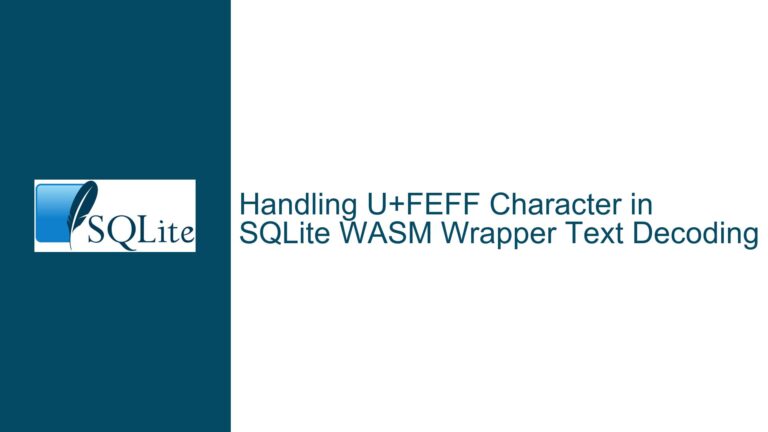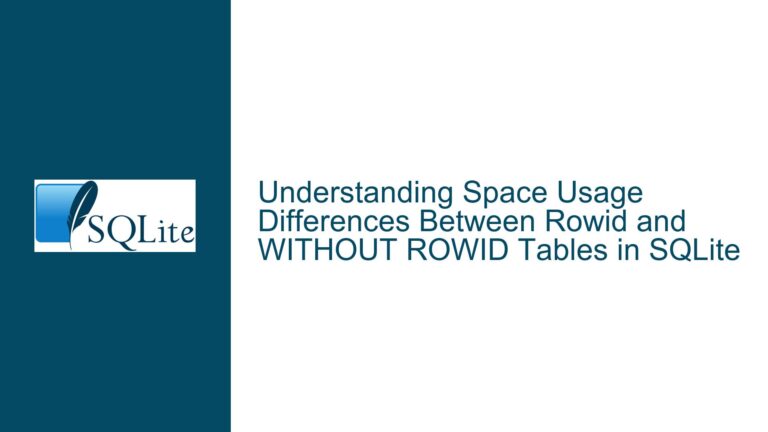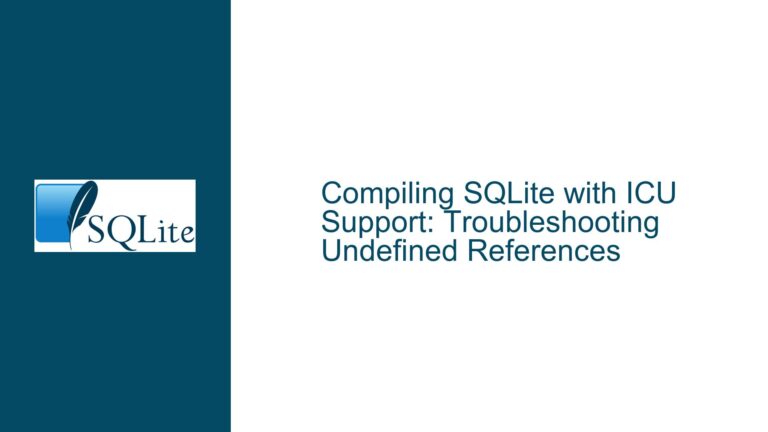Read-Only Connections Blocking WAL Checkpoints and Data Visibility in SQLite
Understanding Transaction Snapshots and WAL Checkpoint Blocking Issue Overview When working with SQLite in Write-Ahead Logging (WAL) mode, persistent read-only connections may prevent checkpoint operations from advancing and fail to observe newly inserted data. This occurs because long-lived read transactions maintain a historical snapshot of the database, blocking the WAL checkpointing process from reclaiming unused…

